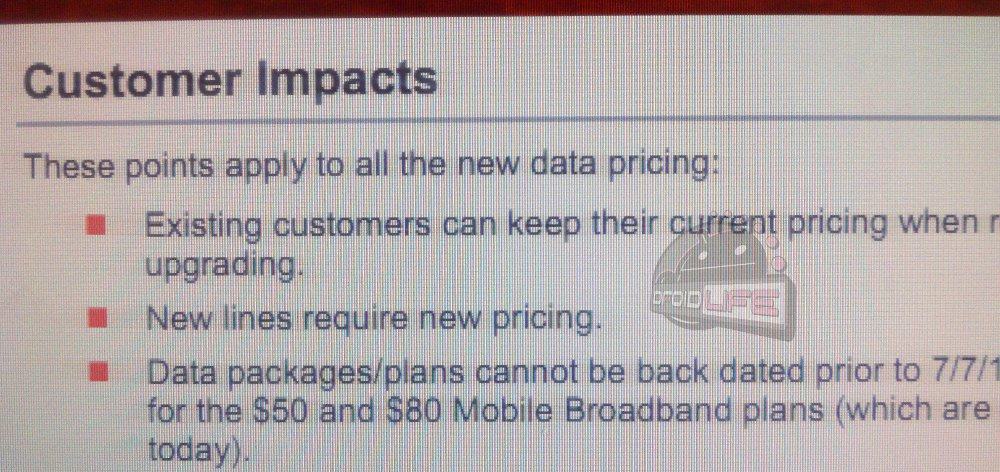
In Wisconsin, one protest after another as state legislators deliver results for corporate interests, often at the expense of the public interest. Broadband was the latest close call.
Imagine if you drove down to your local credit union this morning to find the doors padlocked and an ominous sign taped across the front door: “Closed for Anti-Competitive Business Practices.” Then you return your books on loan from the public library, but find the same padlock and sign on that building, too. Scratching your head, you then drive home vowing to get to the bottom of this only to be greeted by the mailman, who hands you a letter from your daughter’s school announcing steep and immediate tuition increases required to cover surprising new expenses.
As you try and understand what exactly has happened, it all becomes clear when you switch on the evening news — the Republicans in Wisconsin have launched their version of a “revolution,” — one that originally promised to “restore fiscal sanity,” but instead looks more and more like a statewide pilot project run by the Ayn Rand Institute, with the financial backing of AT&T.
In the fight for better broadband, normally the bad actors can be easily identified and called out from both political parties. Democrats and Republicans turn campaign contributions and promises of power and influence into favorable, often custom-dictated legislative proposals that come straight from the companies that will benefit the most. But the last six months of Republican rule in Wisconsin cannot be compared with anything else that has come before. It’s a wholesale sellout to AT&T, and even statewide protests and media coverage on a massive scale appears to have only delivered a temporary reprieve, with strings attached. What’s worse, even after the massive call-out against the telecom overreach, some of the proponents of broadband slash and burn politics are completely unrepentant, vowing to try again, perhaps when the public isn’t paying attention.
While some educational institutions believe any deal is better than no deal with the state’s ideologues, they will do themselves no favor if they drop the issue after the “compromise” is reached. This all-out “war on broadband” cannot be appeased while AT&T’s true believers remain in office.
 Let’s catch up.
Let’s catch up.
In the last 48 hours, an ongoing series of “discussions” about the ultimate fate of WiscNet, Wisconsin’s institutional broadband cooperative network, have brought some assurances the network will not have to close its doors, at least not yet. Yesterday, AT&T’s meddling to make changes to the “compromise” was on display, and one should never underestimate the cleverness of this company at finding ways to tie the hands of its targets with innocuous-looking legislative language. Those stealthy last-minute additions can deliver a powerful sting only realized later, after the bill becomes law.
Angry phone calls pounded legislators in Madison, as did many newspaper editorials, TV news coverage (which we will review below), and a lobbying counterattack by librarians and educators all working to stop AT&T from winning an all out victory. But make no mistake, this battle is by no means over.
For at least two years, WiscNet appears to have won the basic right to continue to exist, but only under a form of big government supervision.
The provision to ban award recipients from accepting broadband stimulus money from the federal government has been dropped. Telecom industry lobbyists fought hard to get Wisconsin to virtually return federal stimulus money awarded to public broadband projects by trying to prohibit winners from accepting the checks. Tens of millions already allocated to the University of Wisconsin would have had to be forfeit. Instead, the changes worked out this week allow the university to use those funds to build and expand WiscNet to more state schools, libraries and public buildings.

WiscNet Coverage
Few legislators would openly admit trying to utterly destroy WiscNet, instead preferring “death by a thousand cuts,” writing rules and regulations that threaten the viability of the network’s ability to conduct operations. While most of the onerous provisions were turned back, including those that would ban participation in Internet2 and limit WiscNet’s expansion, the compromise forces the network to face additional auditing and scrutiny by committed opponents to public broadband.
WiscNet put on a brave face, releasing the following statement:
We welcome an objective review of the relationship between the University of Wisconsin and WiscNet, a nonprofit cooperative. The amendment allows the University of Wisconsin to continue as full members of WiscNet for the next two years, while the review helps everyone understand these issues better. We look forward to a healthy dialogue with legislators, telecommunications providers, community partners, and others. We are confident that those open lines of communication will be fruitful.
Don’t count on it. Having followed these legislative battles for the past several years, one thing is certain: AT&T and their industry friends like Access Wisconsin will be back to try again and again and again. As long as the current legislature includes members who are not only amenable to AT&T’s world views, but openly espouse them (and occasionally exceed them), WiscNet and public broadband in general is hardly safe.
Let’s remember who and what we are dealing with here:
The War on Broadband: At the core of the Republicans’ argument against public or institutional broadband is that it competes unfairly (somehow) against private corporate providers. That argument ignores the fact WiscNet, among many other public and institutional networks, is essentially a cooperative, and one that existed long before phone and cable companies got into the Internet Service Provider business themselves. Members pool resources to sustain a service that first and foremost delivers benefits to its users, not to external banks or investors. Many institutional networks like WiscNet might even be compared to credit unions, delivering service to a pre-determined constituency that also happens to have a voice in how that network is run.
There are big banks and their supporters who detest credit unions because they represent “unfair competition” for them, because they can afford to deliver more service for less money. It’s a familiar argument when you listen to some Republican senators in Wisconsin argue that the very existence of WiscNet represents anti-competitive behavior, harming fellow networks like Badgernet (another state institutional network). It should not be a surprise to our readers to learn Badgernet is a network largely serviced by AT&T, and charges radically higher prices for its service because of what the phone company charges them for access.
The conservative movement in Wisconsin has been largely content dismissing broadband support in Wisconsin as a luxury perk, despite the fact the state scores 43rd out of the 50 best-wired states. In addition to the purposeful distortions coming from those opposing networks like WiscNet, some have been reduced to arguing academia simply wants these networks for fast access to porn and copyrighted content.

Can Wisconsin afford their asking price?
“Help” from Dollar-A-Holler Mouthpieces like Access Wisconsin: This group, funded by the commercial telecommunications companies it represents at the expense of ordinary consumers, claims it is a helper in delivering an improved broadband experience in Wisconsin. So helpful, in fact, it joined with AT&T and the state Republicans in calling for federal broadband stimulus money to be returned and not spent in the state for improved service. While Access Wisconsin attacks government subsidies it doesn’t like, its member companies run to the bank with over $90 million annually in federally-mandated Universal Service payments. The group is even upset the University of Wisconsin didn’t use state-based providers and contractors to build their expanded fiber network. That comes as little surprise considering the University reached out to several of Access Wisconsin’s member companies (and AT&T) and found none interested in helping out.
The War on Libraries, Schools, and Taxpayers: The proposed cuts in library spending are deemed so dire by many patrons, they have begun to suspect the Republican majority would rather see people buy books at Wal-Mart than check them out for free at the town library. On top of the budget cuts, broadband costs for schools and libraries would explode if these institutions were forced to buy access from Badgernet.
The party of “fiscal sanity” supported killing off cost-effective, money-saving broadband from WiscNet to fulfill a rigid ideological framework that would ultimately deliver less service for a lot more money.
Let’s compare prices for a moment. Badgernet, which gets wholesale access from AT&T, charges prices that are far higher than WiscNet charges. Badgernet itself is not the problem, its wholesale supplier is. To defray the costs, the state of Wisconsin subsidizes Badgernet to the tune of nearly $17 million annually, to keep prices affordable for libraries and schools. That $17 million effectively goes straight into AT&T’s bank account. But that subsidy only gets you so far. Badgernet charges $6,000 a month for 100Mbps service because that is the price required to recover costs charged by AT&T. Many institutions rapidly outgrow this level of service and can upgrade to 1,000Mbps service, so long as they have a spare $49,500 a month laying around for broadband.
In contrast, clients on WiscNet can purchase 1,000Mbps service for about $10,000 a year. Is that price disparity worth raising a ruckus over? Apparently so.
The AT&T Dilemma: While AT&T did not win everything it wanted this year, prior evidence shows the company will be back to try again, just as it did with its statewide video franchising legislation that was supposed to deliver a competitive market for cable in the state. In fact, it delivered higher prices instead. Negotiating defensively with companies like this assures a war of attrition, as public providers find themselves compromising away core features of their network to protect whatever is left.
A much better idea for Wisconsin broadband is to launch an all-out counteroffensive. Instead of stalemate compromises that constrain public networks, let’s demand they expand. If there can be a co-op for dairy products and a credit union for banking, there certainly can be a community broadband cooperative that delivers service not just to institutions, but to members of the public and any independent provider who wants access — publicly owned for the public good. That may not be WiscNet, designed under an institutional model, but it certainly need not be yet another overpriced offering from AT&T.
Before that can happen, Wisconsin residents need a cleanup — an upgrade — of the caliber of elected officials working on their behalf. Thus far, a good percentage of Wisconsin’s current majority party seems far more interested in turning the state into a corporate lab experiment of their version of the free market done their way — for their benefit, at your expense. The proof was at hand this week when the state nearly adopted a “cost saving” measure for broadband that would have cost Wisconsin taxpayers considerably more, all for the benefit of a handful of telecom companies. Let’s help those legislators find a new day job sooner rather than later.
After that, WiscNet needs a legislative advocate of its own to introduce measures that undo the damage and then build on WiscNet’s success by expanding its reach and keeping it affordable.
Timeline: Tracking Wisconsin’s Awakening of the Wisconsin Republicans’ Broadband Agenda
Too often, broadband policy debates are too arcane for the general public to grasp. Most people in the state probably never heard of WiscNet, and don’t realize when they might be using it. But what they do understand is pay-for-play politics that hits them in the pocketbook. As state residents learned the Republican majority wanted to ban the provider that delivers the most service for the least amount of money in favor of AT&T, they got involved and helped temporarily defeat the plan.
[flv width=”512″ height=”298″]http://www.phillipdampier.com/video/WISC Madison UW Schools Voice Concerns About Budget Measure Affecting Internet 6-7-11.m4v[/flv]
June 7th: WISC-TV in Madison explains to viewers the plan to kill WiscNet would carry a pricetag of at least $70,000 in Madison alone, with potentially millions more at stake, all for the industry’s claim of a “level playing field.” (2 minutes)
[flv]http://www.phillipdampier.com/video/WAOW Wausau Library Internet 6-08-11.mp4[/flv]
June 8th: WAOW-TV in Wausau discovers what the war on WiscNet would do to Internet access in area libraries. (2 minutes)
[flv]http://www.phillipdampier.com/video/WFRV Green Bay WiscNet Deleted 6-12-11.mp4[/flv]
June 12th: WFRV-TV in Green Bay tells its viewers the cost to procure Internet access in area universities could increase from $70,000 to more than $400,000, all to benefit private providers who want to compete at much higher price points. (1 minute)
[flv]http://www.phillipdampier.com/video/WXOW LaCrosse Pulling the Plug on WiscNet 6-13-11.mp4[/flv]
June 13th: LaCrosse residents are told they’ll pay more for less if large telecommunications companies get their wish to knock out inexpensive broadband through WiscNet. WXOW-TV lead the 5pm evening news with news the bill was a last minute addition that received full support from state Republicans. (2 minutes)
[flv]http://www.phillipdampier.com/video/WEAU Eau Claire WiscNet 6-14-11.mp4[/flv]
June 14th: WEAU-TV in Eau Claire reports Sen. Terry Moulton (R-23rd District) got an earful from area hospitals about the terrible impact the shutdown of WiscNet would have there, which concerned him. The station also reports on the threat to broadband funding in rural Chippewa Valley. (Loud Volume Warning) (2 minutes)
[flv]http://www.phillipdampier.com/video/WQOW Eau Claire WiscNet Targeted 6-14-11.mp4[/flv]
June 14th: Eau Claire station WQOW-TV reports university students and academia generally faced the end of unlimited bandwidth if the state proposal to do away with WiscNet were to pass into law. A telecom industry lobbyist claims the bill would allow private providers to deliver comparable service to institutions, but one local institution found an amazing price disparity: $2,500/yr with WiscNet or $1,000,000/yr with a private provider. (2 minutes)
[flv]http://www.phillipdampier.com/video/WXOW La Crosse New Amendments 6-15-11.mp4[/flv]
June 15th: Newly elected Rep. Steve Doyle introduces amendments to turn back Republican proposals in the legislature that would harm statewide broadband networks, reports WXOW-TV in La Crosse. (2 minutes)
[flv]http://www.phillipdampier.com/video/WKOW Madison WiscNet will stay the same in budget 6-16-11.mp4[/flv]
June 16th: WKOW-TV in Madison reports a compromise deal which will keep service running as-is for now, but subject WiscNet to government approval of any expansion efforts. (1 minute)
 Verizon Wireless will end its unlimited data smartphone plan on July 6th, pushing future customers to choose usage tiers priced at $30 for 2GB, $50 for 5GB, or $80 for 10GB. But existing customers with either 3G or 4G phones can keep their existing unlimited data plans indefinitely, according to leaked Verizon memos.
Verizon Wireless will end its unlimited data smartphone plan on July 6th, pushing future customers to choose usage tiers priced at $30 for 2GB, $50 for 5GB, or $80 for 10GB. But existing customers with either 3G or 4G phones can keep their existing unlimited data plans indefinitely, according to leaked Verizon memos.

 Subscribe
Subscribe














